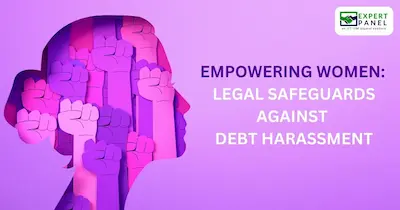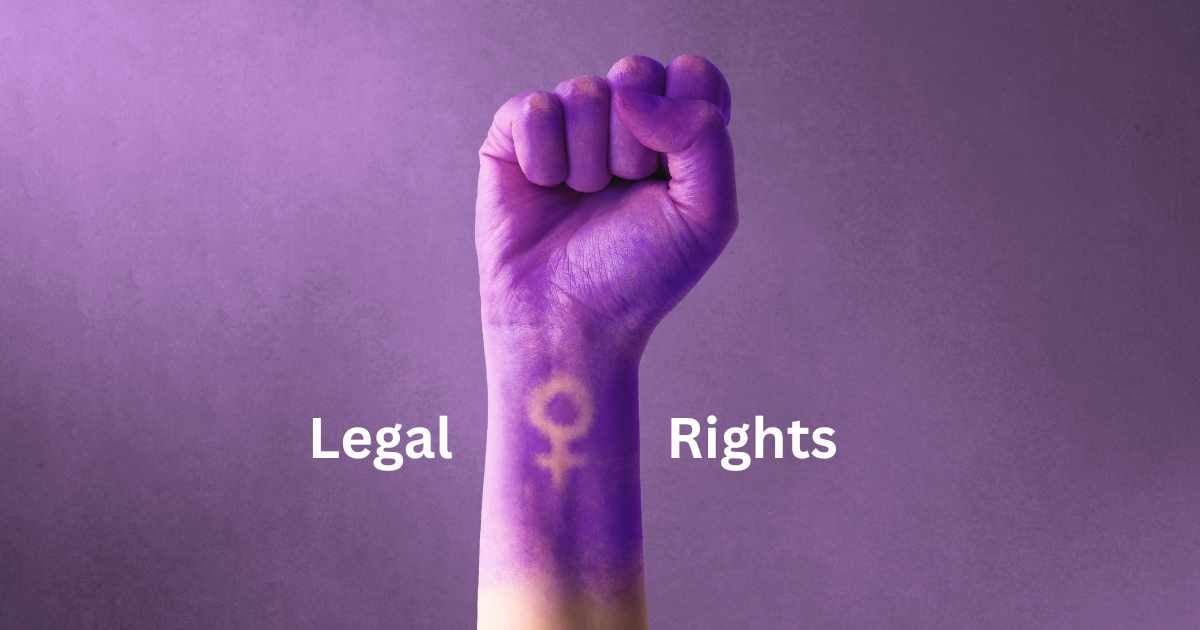· Debt Harassment · 4 min read
Empowering Women: Legal Safeguards Against Debt Harassment
Many women in India, when faced with the pressure of repaying debts, experience harassment from aggressive creditors. These recovery agents often resort to tactics like persistent phone calls at odd hours, threats of public humiliation, and even unannounced visits to their homes. For women, especially those in vulnerable situations, this kind of harassment can be deeply distressing.

It is important to be aware of the legal protections that are in place because Indian women who are settling debts frequently experience harassment from creditors. Abusive collection practices are expressly prohibited by laws such as RBI guidelines and the Indian Penal Code (IPC). In addition to providing dignity and justice in financial transactions, the Consumer Protection Act protects women against unfair tactics. Awareness of these legal protections is essential for empowering women to negotiate debt settlements with confidence and protect their rights from harassment.
Understanding Harassment in Debt Collection
When handling debt, bank collection workers often intimidate women in India in a frightening way. These bank-hired collectors of past-due payments occasionally coerce women into making payments through unethical and unlawful means. One of the most popular strategies is making aggressive, persistent phone calls at odd hours, frequently with threats and foul language. Women often fear arrest or public humiliation, which adds to their mental and emotional stress.
Unannounced visits to the debtor’s home or place of employment by male collection agents pose another major problem. This can be frightening, particularly for single women or those from conservative households. These agents may prey on women’s social vulnerabilities by threatening to disclose the debt to their neighbors, relatives, or employers. There have been allegations of agents verbally abusing customers, making improper remarks, or even trying to exert pressure by exploiting the stigma associated with women’s financial struggles.
Legal Protections Available to Women
To preserve their rights and dignity, Indian women are shielded from harassment by bank recovery agents through several legal measures. These protections are specified by various laws and regulations:
Guidelines issued by the Reserve Bank of India (RBI): The RBI requires banks and recovery agencies to use fair and ethical methods of recovery. The use of abusive language and harassment is strictly prohibited. Recovery agents are not allowed to call debtors at inappropriate times, such as before 7 a.m. or after 7 p.m., and they must respect privacy.
Indian Penal Code (IPC): If recovery agents employ threats, verbal abuse, or indecent behavior, they may be subject to Sections 503 (Criminal Intimidation) and 509 (Insulting the Modesty of a Woman). These sections enable women to report agents to law enforcement for criminal offenses.
The Consumer Protection Act (2019): It shields consumers—including debtors—from deceptive business practices and intimidation by debt collection agencies. It provides a mechanism for complaints about harassment or unethical behavior to be filed in consumer courts.
Debt Recovery Tribunal (DRT): Women can file a complaint with the DRT against banks for unjust recovery practices, including harassment by agents.
Protection of Women from Domestic Violence Act, 2005: Women who experience emotional abuse or intimidation can seek protection under this act if recovery activities involve coercive behavior that infringes upon their personal space.
These legal protections empower women to oppose harassment and demand accountability for unethical recovery methods.
Steps to Take if Harassed
As a woman in India facing harassment from bank recovery agents, there are several steps you can take to defend yourself and seek justice:
Documentation: Keep a log of every interaction with recovery agents, including the dates, times, and subjects of calls and visits. Keep any written correspondence, call records, and texts as evidence.
Know Your Rights: Familiarize yourself with the RBI regulations that forbid banks and agents from calling you at odd hours or using hostile language. Stay informed about the protections against abusive or threatening behavior provided by the Indian Penal Code and the Consumer Protection Act.
Submit a Complaint to the Bank: Report the harassment to the bank’s grievance redressal system. Banks are required to have an internal complaint mechanism to address unethical recovery agent behavior.
Report to the RBI: If the bank does not respond, escalate the matter by reporting it to the Reserve Bank of India (RBI) or the Banking Ombudsman.
File a Police Complaint: If the harassment involves threats, verbal abuse, or inappropriate behavior, file a police report under Section 503 (Criminal Intimidation) or Section 509 (Insulting the Modesty of a Woman) of the Indian Penal Code.
Take Legal Action: If the treatment is unfair, consider legal recourse through the Debt Recovery Tribunal (DRT) or consumer courts by filing a complaint. These steps will help ensure that recovery agents respect your legal and ethical rights.
Conclusion
Indian women facing harassment during debt settlements have strong legal protections to defend their rights. The RBI guidelines, IPC provisions, and the Consumer Protection Act offer crucial safeguards against abusive debt collection practices. Women should be proactive in documenting incidents and asserting their rights, while legal avenues such as the Debt Recovery Tribunal (DRT) and consumer courts provide recourse for unjust treatment. By understanding and utilizing these protections, women can navigate the debt settlement process with confidence and security, ensuring that their dignity is respected throughout.



.jpg.CyBm4nK9.jpeg)